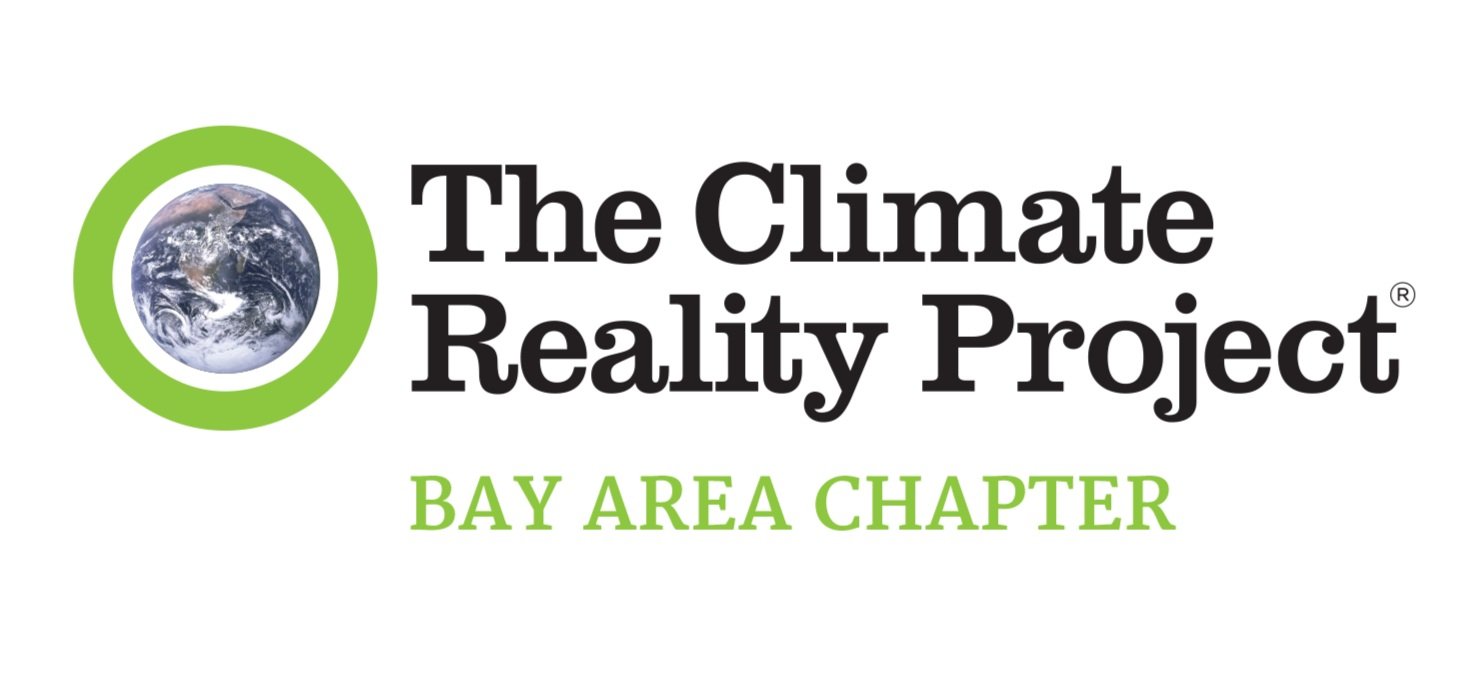“Everyday Climate Champions” Podcast Episode 12: Plant-Based Diets: A Climate Solution Right On Our Plates
Written by Keith Nickolaus
Learn more about Climate Reality Bay Area’s podcast, Everyday Climate Champions here.
“If people reduce the amount of animals they eat, I believe slowly we can reduce the amount of carbon dioxide being released into the atmosphere, and improve the climate.” - Ravinder Sehgal
Listen to Episode 12: here
Transcript: here
Guests: Ravinder Sehgal, Board Member of the San Francisco Veg Society and biology professor at San Francisco State University
Host: Ellisa Feinstein
Summary:
Ravinder Sehgal, Board Member of the San Francisco Veg Society and biology professor at San Francisco State University, discusses why our food choices have a lot to do with humans’ impact on the climate. The conversation not only spotlights some compelling reasons for moving toward a plant-based diet, but also hits on topics ranging from deforestation, to greenhouse gas emissions, energy conservation, and more. Ravinder wants to remind us that going vegan is a win-win: good for our health, for animals, and for the planet. You’ll also learn why Ravinder thinks it can be so hard for humans to change eating habits, but why we must. And he shares some tips and recommendations to help us start our journey to adopting a more Earth-friendly diet.
Why This Matters:
Growing bodies of research reveal that our animal farming practices contribute significantly to carbon emissions. So we have a great opportunity to make a significant impact if we change our demand for meat and dairy! If humans reduce animal farming along with the large-scale industrial farming of crops like corn and soybeans (grown for animal feed), the combined reductions in meat-based farming practices could reduce net emissions by around 50%.
Livestock production and factory farming are also drivers of the large-scale destruction of healthy soils and rainforests, further intensifying carbon emissions and global warming. Reclaiming these lands for the restoration of forests, healthy ecosystems, and for crops to feed humans (instead of livestock) will reduce the carbon footprint of our food chains, reduce methane emissions, and restore forests that convert carbon to oxygen.
Despite what researchers are telling us about how much our eating habits affect the environment, there are many cultural barriers preventing people from pivoting to plant-based diets. We all need to consider how we can make what we eat a more urgent part of the climate agenda.
Key Takeaways
It can be hard to change our diets and not as “sexy” as buying an electric vehicle, but shifting away from meat-centric diets is good for our health, reduces cruelty to animals, and is a significant personal change we can make to reduce global warming.
An example: The environmental impact of tofu is about 30 times less that of beef burgers, yet soybeans provide all the protein and essential amino acids that meat provides.
Destruction of the rainforest for animal farming and factory farming is not only bad for the climate, but it has also contributed to diseases, such as Zika and Dengue Fever.
By reducing our reliance on animal proteins and cattle farming, we can reduce methane releases as well as the amount of Co2 that goes into the atmosphere.
Because of large-scale cattle raising operations, we are using lots of energy in the form of factory farms for corn and soybeans — to feed the livestock. If both large-scale ranch operations and livestock feed production were curtailed, these large acreages of land could be restored to more planet-friendly ecosystems, or used to grow crops for human consumption.
Factory farming is often fertilizer-intensive, and all these fertilizers are actually produced with carbon. That makes the mass production and consumption of industrial fertilizers another negative impact of a meat-based diet.
Cultural traditions all around the globe are most often intertwined with traditional, meat-based recipes, so changing dietary habits is difficult. Discussions of climate change often don’t include considerations of the impacts of animal farming vs. plant-based diets.
There are many local and Internet resources — from vegetarian supermarkets to resources for healthy living — that can help people learn more about plant-based diets and food choices.
Moving in a vegan direction is good all around — for reducing carbon emissions, for health, and for animals!
How to Take Action
Knowledge is empowering, so learn more about why scientists think going vegan will help us achieve significant reductions in carbon emissions and save the planet:
The next time you’re discussing climate change, help others understand what you’ve learned from this podcast about how much our food matters for the planet, our health, and for animals.
If you live in San Francisco, you can shop at Rainbow Grocery, which carries vegan and vegetarian food items, beauty/personal products, and home goods. Look for similar types of market options in your community (including farmers’ markets).
Related Websites:
SF Veg Society: a non-profit organization that promotes a plant-based diet and a vegan lifestyle for healthy, ethical and sustainable living
Physicians Committee for Responsible Medicine - a non-profit organization dedicated to saving and improving human and animal lives through plant-based diets and ethical and effective scientific research
About Ravind Sehgal: learn more about Ravinder Sehgal and his work
Contact Us: Do you know a Bay Area-based Everyday Climate Champion? We’d love to interview them! Or just want to share a comment or hear about new episodes?
Get in touch: crba.eccpodcast@gmail.com
Get notified of new episodes HERE
Podcast Production Team: Executive Producer: Dalya Massachi; Sound Designer: Trevor Skerbe; Co-Hosts: George Dy, Ellisa Feinstein, Isabella Genereaux, Sean Mendelson, Hasini Parepalli Logo Designer: Gabriela Vargas
